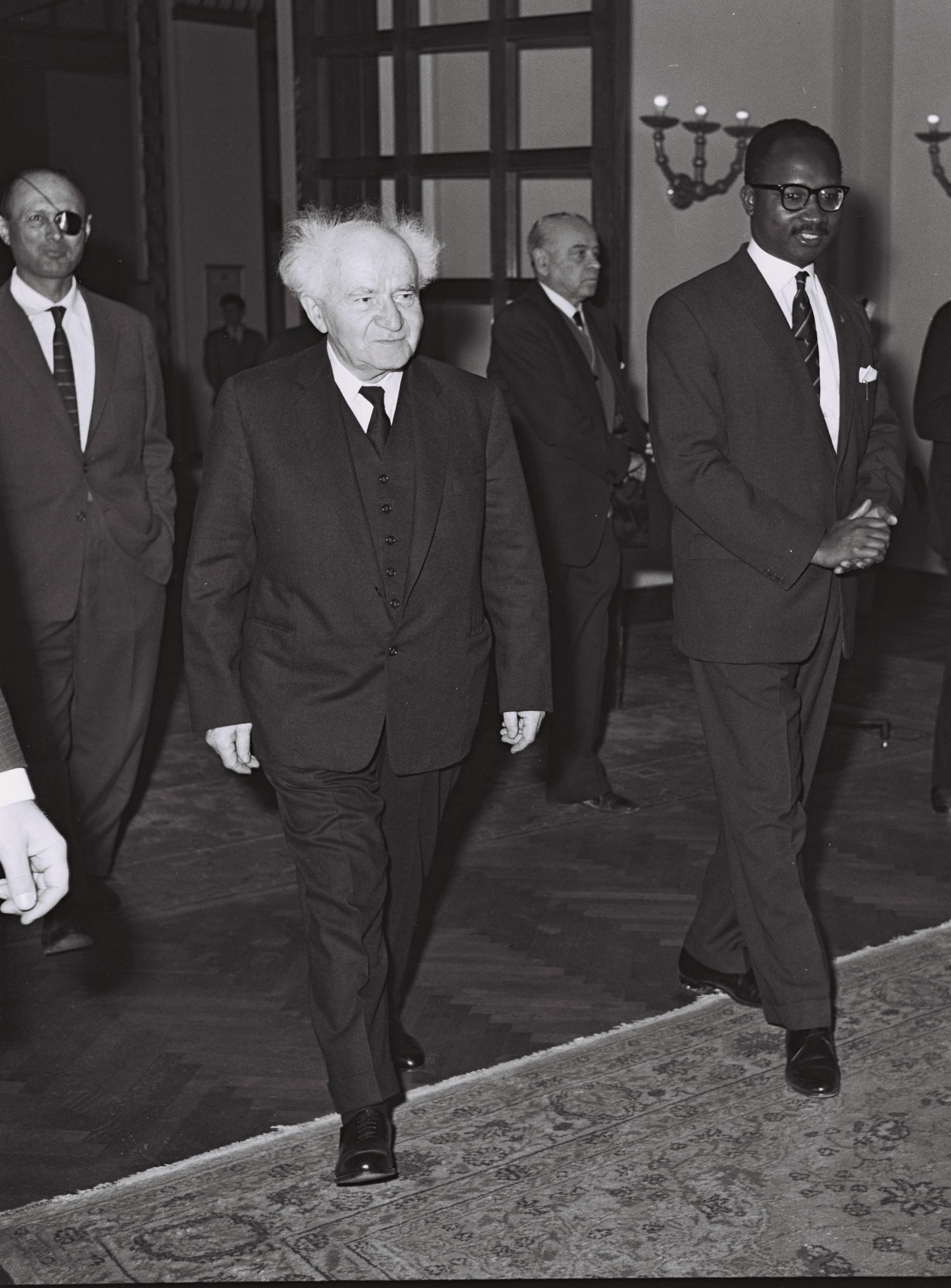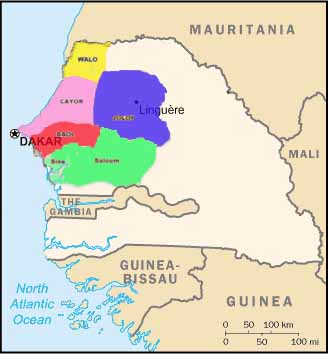|
Laba Sosseh
Laba Badara Sosseh; Labba Sosseh or Laba Sosseh (born March 12, 1943 in ''Bathurst'' now Banjul, Gambia, died September 20, 2007 in Dakar, Senegal) was a Senegalese son and salsa singer and composer. According to Abdoulaye Saine of Miami University, Sosseh is regarded as "the greatest salsa singer of his generation and perhaps of all time in Senegambia Major."Saine, Abdoulaye S. Ph.D., ''Culture and Customs of Gambia'', ABC-CLIO (2012), p. 165,(retrieved February, 13 2020) Early life and family A griot, Sosseh was born in Bathurst, British Gambia (now Banjul, the Gambia) on 12 March 1943. Through his mother Aji Mariama Mbaye, commonly referred to as Aja Jankey Mbaye, he is related to the Senegambian musician Musa Ngum and Gambian historian Alieu Ebrima Cham Joof. Through his father Dembo Corah Sosseh (or Dembo Kura Sosseh), he is related to Alieu Ebrima Cham Joof through the Sosseh— Joof family. His maternal grandfather Tafsir Demba Njange Mbaye (or Tafsir Demba Mbaye/Mbye) ... [...More Info...] [...Related Items...] OR: [Wikipedia] [Google] [Baidu] |
Son Cubano
Son cubano is a genre of music and dance that originated in the highlands of eastern Cuba during the late 19th century. It is a syncretic genre that blends elements of Spanish and African origin. Among its fundamental Hispanic components are the vocal style, lyrical metre and the primacy of the tres, derived from the Spanish guitar. On the other hand, its characteristic clave rhythm, call and response structure and percussion section ( bongo, maracas, etc.) are all rooted in traditions of Bantu origin. Around 1909 the son reached Havana, where the first recordings were made in 1917. This marked the start of its expansion throughout the island, becoming Cuba's most popular and influential genre. While early groups had between three and five members, during the 1920s the ''sexteto'' (sextet) became the genre's primary format. By the 1930s, many bands had incorporated a trumpet, becoming ''septetos'', and in the 1940s a larger type of ensemble featuring congas and piano became th ... [...More Info...] [...Related Items...] OR: [Wikipedia] [Google] [Baidu] |
Griot
A griot (; ; Manding: jali or jeli (in N'Ko: , ''djeli'' or ''djéli'' in French spelling); Serer: kevel or kewel / okawul; Wolof: gewel) is a West African historian, storyteller, praise singer, poet, and/or musician. The griot is a repository of oral tradition and is often seen as a leader due to their position as an advisor to royal personages. As a result of the former of these two functions, they are sometimes called bards. They also act as mediators in disputes. Occurrence and naming Many griots today live in many parts of West Africa and are present among the Mande peoples ( Mandinka or Malinké, Bambara, Soninke etc.), Fulɓe (Fula), Hausa, Songhai, Tukulóor, Wolof, Serer,Unesco. Regional Office for Education in Africa, ''Educafrica, Numéro 11'', (ed. Unesco, Regional Office for Education in Africa, 1984), p. 110Hale, Thomas Albert, ''Griots and Griottes: Masters of Words and Music'', Indiana University Press (1998), p. 176, Mossi, Dagomba, Mauritan ... [...More Info...] [...Related Items...] OR: [Wikipedia] [Google] [Baidu] |
Jamboree
In Scouting, a jamboree is a large gathering of Scouting, Scouts who rally at a national or international level. History The 1st World Scout Jamboree was held in 1920, and was hosted by the United Kingdom. Since then, there have been twenty-three other World Scout Jamborees, hosted in various countries, generally every four years. The 25th World Jamboree is to be held in Korea in 2023. There are also national and continental jamborees held around the world with varying frequency. Many of these events will invite and attract Scouts from overseas. Other gatherings With the birth of the Jamboree concept, other large gatherings are also organized by national Scout organizations, geared towards a particular group of Scouts. Examples of these large gatherings include: * World Scout Moot, Moot - a camp or a gathering of Rovers * Australian Venture, Venture - a gathering of young people in the Venture (Senior Scout) section * World Scout Indaba, Indaba - a camp or a gathering of Adult ... [...More Info...] [...Related Items...] OR: [Wikipedia] [Google] [Baidu] |
Le Quotidien (Senegal)
''Le Quotidien'' is a major independent daily newspaper in Senegal, based in the capital of Dakar. It also publishes a glossy weekly, entitled ''Week end''.Senegal Country Commercial Guide 2008 . (2008). Launch Launched by owner/editor Madiambal Diagne—a former reporter for Dakar's Wal Fadjri—and his company in February 2003, Le Quotidien is generally critical of the govern ...[...More Info...] [...Related Items...] OR: [Wikipedia] [Google] [Baidu] |
Signalman
A signalman is a person who historically made signals using flags and light. In modern times, the role of signalmen has evolved and now usually uses electronic communication equipment. Signalmen usually work in rail transport networks, armed forces, or construction (to direct heavy equipment such as cranes). Many armed forces now use the rank of signaller A signaller, signalman, colloquially referred to as a radioman or signaleer in the armed forces is a specialist soldier, sailor or airman responsible for military communications. Signallers, a.k.a. Combat Signallers or signalmen or women, are ... instead. {{transport-stub Transport occupations ... [...More Info...] [...Related Items...] OR: [Wikipedia] [Google] [Baidu] |
British Overseas Airways Corporation
British Overseas Airways Corporation (BOAC) was the British state-owned airline created in 1939 by the merger of Imperial Airways and British Airways Ltd. It continued operating overseas services throughout World War II. After the passing of the Civil Aviation Act 1946, European and South American services passed to two further state-owned airlines, British European Airways (BEA) and British South American Airways (BSAA). BOAC absorbed BSAA in 1949, but BEA continued to operate British domestic and European routes for the next quarter century. A 1971 Act of Parliament merged BOAC and BEA, effective 31 March 1974, forming today's British Airways. For most of its history its main rival was Pan Am. History War years On 24 November 1939, BOAC was created by Act of Parliament to become the British state airline, formed from the merger of Imperial Airways and British Airways Ltd. The companies had been operating together since war was declared on 3 September 1939, when their ... [...More Info...] [...Related Items...] OR: [Wikipedia] [Google] [Baidu] |
Dawda Kairaba Jawara
Sir Dawda Kairaba Jawara (16 May 1924 – 27 August 2019) was a Gambian politician who served as Prime Minister from 1962 to 1970, and then as the first President of the Gambia from 1970 to 1994. Jawara was born in Barajally, MacCarthy Island Division, the son of Mamma Fatty and Almami Jawara. He was educated at the Methodist Boys' School in Banjul (Bathurst) and then attended Achimota College in Ghana. He trained as a veterinary surgeon at the University of Glasgow's School of Veterinary Medicine, then completed his training at the University of Liverpool and University of Edinburgh. He returned to The Gambia in 1953 and married Augusta Mahoney, beginning work as a veterinary officer. He decided to enter politics and became secretary of the new People's Progressive Party (PPP) and was elected to the House of Representatives in the 1960 election. He became the leader of the PPP and then the country's first Prime Minister in 1962, only the second ever head of government foll ... [...More Info...] [...Related Items...] OR: [Wikipedia] [Google] [Baidu] |
Kingdom Of Saloum
The Kingdom of Saloum (Serer language: ''Saluum'' or ''Saalum'') was a Serer/Wolof kingdom in present-day Senegal. Its kings may have been of Mandinka/ Kaabu origin. The capital of Saloum was the city of Kahone. It was a sister kingdom of Sine. Their history, geography and culture were intricately linked and it was common to refer to them as the Sine-Saloum. History Saloum, just like its sister kingdom (the Kingdom of Sine), is known for its many ancient burial mounds or "tumuli" containing the graves of kings and others. The kingdom has numerous mysterious stone circles whose functions and history were unknown until recently. Historian Donald R. Wright states that "In the last decade of the fifteenth century, a group of nyancho lineages from Kaabu moved north of the Gambia River and took over an area on the southern edge of the weakening Jolof Empire. From a settlement near the mouth of the Saloum River, these lineages soon mixed with the existing Wolof and Serer popula ... [...More Info...] [...Related Items...] OR: [Wikipedia] [Google] [Baidu] |
Wolof Language
Wolof (; Wolofal: ) is a language of Senegal, Mauritania, and the Gambia, and the native language of the Wolof people. Like the neighbouring languages Serer and Fula, it belongs to the Senegambian branch of the Niger–Congo language family. Unlike most other languages of the Niger-Congo family, Wolof is not a tonal language. Wolof is the most widely spoken language in Senegal, spoken natively by the Wolof people (40% of the population) but also by most other Senegalese as a second language. Wolof dialects vary geographically and between rural and urban areas. The principal dialect of Dakar, for instance, is an urban mixture of Wolof, French, and Arabic. ''Wolof'' is the standard spelling and may also refer to the Wolof ethnicity or culture. Variants include the older French , , , Gambian Wolof, etc., which now typically refers either to the Jolof Empire or to jollof rice, a common West African rice dish. Now-archaic forms include ''Volof'' and ''Olof''. English is believed ... [...More Info...] [...Related Items...] OR: [Wikipedia] [Google] [Baidu] |
Serer People
The Serer people are a West African ethnoreligious group."Charisma and Ethnicity in Political Context: A Case Study in the Establishment of a Senegalese Religious Clientele" Leonardo A. Villalón, Journal of the , Vol. 63, No. 1 (1993), p. 95, on behalf of the International African Institute They are the third-largest ethnic group in Senegal, making up 15% of the Senegalese pop ... [...More Info...] [...Related Items...] OR: [Wikipedia] [Google] [Baidu] |
Imam
Imam (; ar, إمام '; plural: ') is an Islamic leadership position. For Sunni Muslims, Imam is most commonly used as the title of a worship leader of a mosque. In this context, imams may lead Islamic worship services, lead prayers, serve as community leaders, and provide religious guidance. Thus for Sunnis, anyone can study the basic Islamic sciences and become an Imam. For most Shia Muslims, the Imams are absolute infallible leaders of the Islamic community after the Prophet. Shias consider the term to be only applicable to the members and descendents of the '' Ahl al-Bayt'', the family of the Islamic prophet Muhammad. In Twelver Shiasm there are 14 infallibles, 12 of which are Imams, the final being Imam Mahdi who will return at the end of times. The title was also used by the Zaidi Shia Imams of Yemen, who eventually founded the Mutawakkilite Kingdom of Yemen (1918–1970). Sunni imams Sunni Islam does not have imams in the same sense as the Shi'a, an importan ... [...More Info...] [...Related Items...] OR: [Wikipedia] [Google] [Baidu] |
Tafsir Demba Njange Mbaye
Tafsir ( ar, تفسير, tafsīr ) refers to exegesis, usually of the Quran. An author of a ''tafsir'' is a ' ( ar, مُفسّر; plural: ar, مفسّرون, mufassirūn). A Quranic ''tafsir'' attempts to provide elucidation, explanation, interpretation, context or commentary for clear understanding and conviction of God's will. Principally, a ''tafsir'' deals with the issues of linguistics, jurisprudence, and theology. In terms of perspective and approach, ''tafsir'' can be broadly divided into two main categories, namely ''tafsir bi-al-ma'thur'' (lit. received tafsir), which is transmitted from the early days of Islam through the Islamic prophet Muhammad and his companions, and ''tafsir bi-al-ra'y'' (lit. ''tafsir'' by opinion), which is arrived through personal reflection or independent rational thinking. There are different characteristics and traditions for each of the ''tafsirs'' representing respective schools and doctrines, such as Sunni Islam, Shia Islam, and Su ... [...More Info...] [...Related Items...] OR: [Wikipedia] [Google] [Baidu] |









